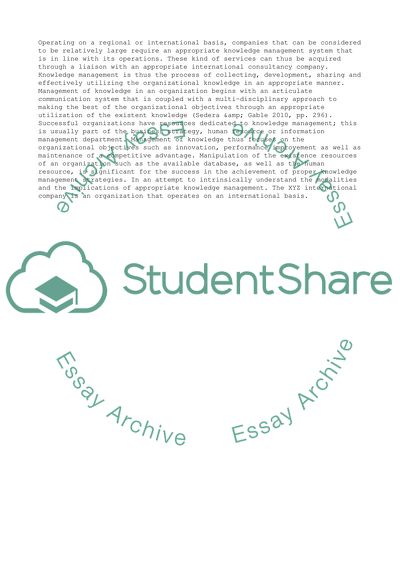Cite this document
(“Management Knowledge-Based Organizations Assignment”, n.d.)
Management Knowledge-Based Organizations Assignment. Retrieved from https://studentshare.org/management/1686238-management-knowledge-based-organisations
Management Knowledge-Based Organizations Assignment. Retrieved from https://studentshare.org/management/1686238-management-knowledge-based-organisations
(Management Knowledge-Based Organizations Assignment)
Management Knowledge-Based Organizations Assignment. https://studentshare.org/management/1686238-management-knowledge-based-organisations.
Management Knowledge-Based Organizations Assignment. https://studentshare.org/management/1686238-management-knowledge-based-organisations.
“Management Knowledge-Based Organizations Assignment”, n.d. https://studentshare.org/management/1686238-management-knowledge-based-organisations.


